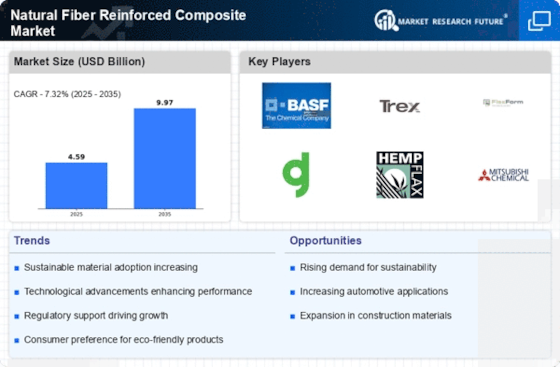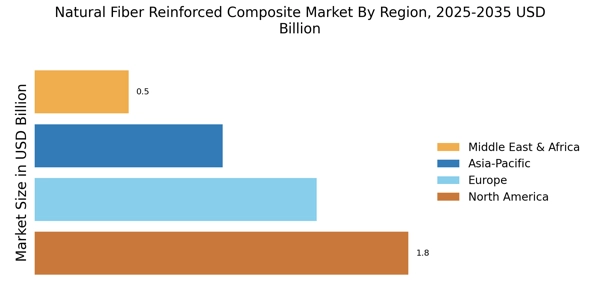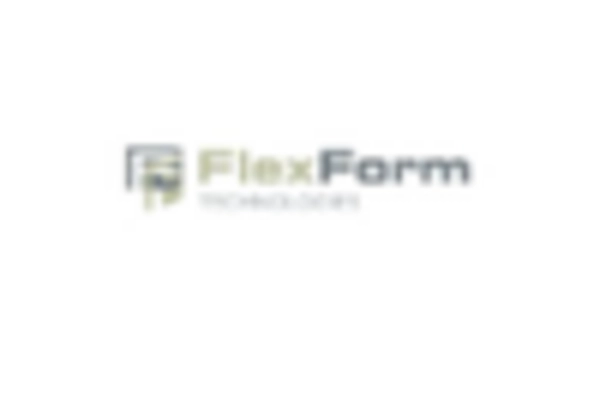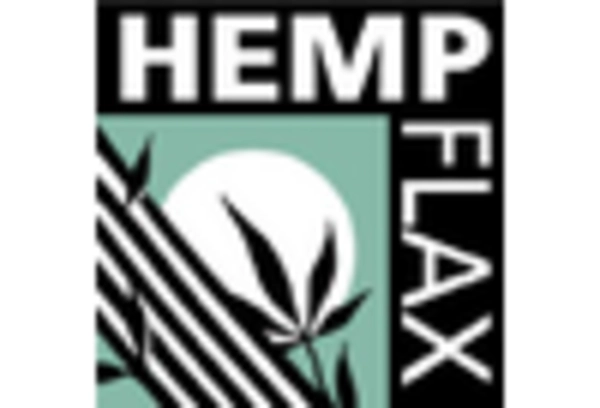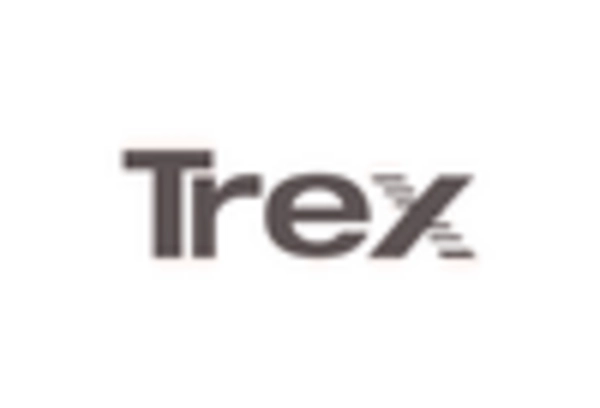Regulatory Support
Regulatory frameworks promoting the use of sustainable materials are playing a crucial role in shaping the Natural Fiber Reinforced Composite Market. Governments across various regions are implementing policies that encourage the adoption of eco-friendly materials in manufacturing processes. For example, initiatives aimed at reducing plastic waste and promoting biodegradable alternatives are fostering a favorable environment for natural fiber composites. This regulatory support not only incentivizes manufacturers to explore natural fiber options but also enhances consumer confidence in these products. As a result, the market is likely to see an increase in investments and collaborations focused on developing innovative natural fiber composite solutions. The Natural Fiber Reinforced Composite Market is thus positioned for growth, with regulatory backing serving as a catalyst for wider adoption and integration into mainstream applications.
Technological Innovations
Technological advancements in the processing and application of natural fibers are significantly influencing the Natural Fiber Reinforced Composite Market. Innovations such as improved fiber extraction techniques and enhanced composite formulations are enabling manufacturers to produce higher quality materials with superior performance characteristics. For instance, advancements in hybrid composites, which combine natural fibers with synthetic materials, are expanding the application range of these composites in various industries. The market is witnessing a surge in research and development activities aimed at optimizing the mechanical properties of natural fiber composites, which could lead to broader acceptance in high-performance applications. As a result, the Natural Fiber Reinforced Composite Market is expected to experience substantial growth, with projections indicating a market size increase to over USD 5 billion by 2027, driven by these technological innovations.
Sustainability Initiatives
The increasing emphasis on sustainability appears to be a primary driver for the Natural Fiber Reinforced Composite Market. As industries seek to reduce their carbon footprints, natural fibers, which are biodegradable and renewable, are gaining traction. This shift is evident in sectors such as automotive and construction, where companies are integrating these composites to meet environmental standards. The market for natural fiber composites is projected to grow at a compound annual growth rate of approximately 10% over the next few years, indicating a robust demand driven by eco-friendly initiatives. Furthermore, consumer preferences are shifting towards sustainable products, compelling manufacturers to innovate and adopt natural fiber composites in their offerings. This trend not only enhances brand image but also aligns with global sustainability goals, making it a pivotal factor in the growth of the Natural Fiber Reinforced Composite Market.
Consumer Awareness and Preferences
The growing consumer awareness regarding environmental issues is emerging as a significant driver for the Natural Fiber Reinforced Composite Market. As consumers become more informed about the impact of their purchasing decisions, there is a noticeable shift towards products that are sustainable and environmentally friendly. This trend is particularly evident in sectors such as furniture, packaging, and consumer goods, where natural fiber composites are being embraced for their eco-friendly attributes. Market Research Future indicates that a substantial percentage of consumers are willing to pay a premium for products made from sustainable materials, which is encouraging manufacturers to incorporate natural fiber composites into their offerings. This heightened consumer preference is likely to stimulate innovation and competition within the Natural Fiber Reinforced Composite Market, fostering a dynamic environment for growth and development.
Rising Demand in Automotive Sector
The automotive sector's growing demand for lightweight and sustainable materials is significantly driving the Natural Fiber Reinforced Composite Market. As manufacturers strive to enhance fuel efficiency and reduce emissions, the integration of natural fiber composites into vehicle design is becoming increasingly prevalent. These materials offer a favorable strength-to-weight ratio, which is essential for improving vehicle performance. Recent studies indicate that the use of natural fiber composites can reduce vehicle weight by up to 20%, leading to substantial fuel savings. Consequently, major automotive companies are investing in research to develop innovative applications of natural fiber composites, further propelling market growth. The Natural Fiber Reinforced Composite Market is thus poised to benefit from this trend, with projections suggesting a continued rise in demand as the automotive industry increasingly prioritizes sustainability.


